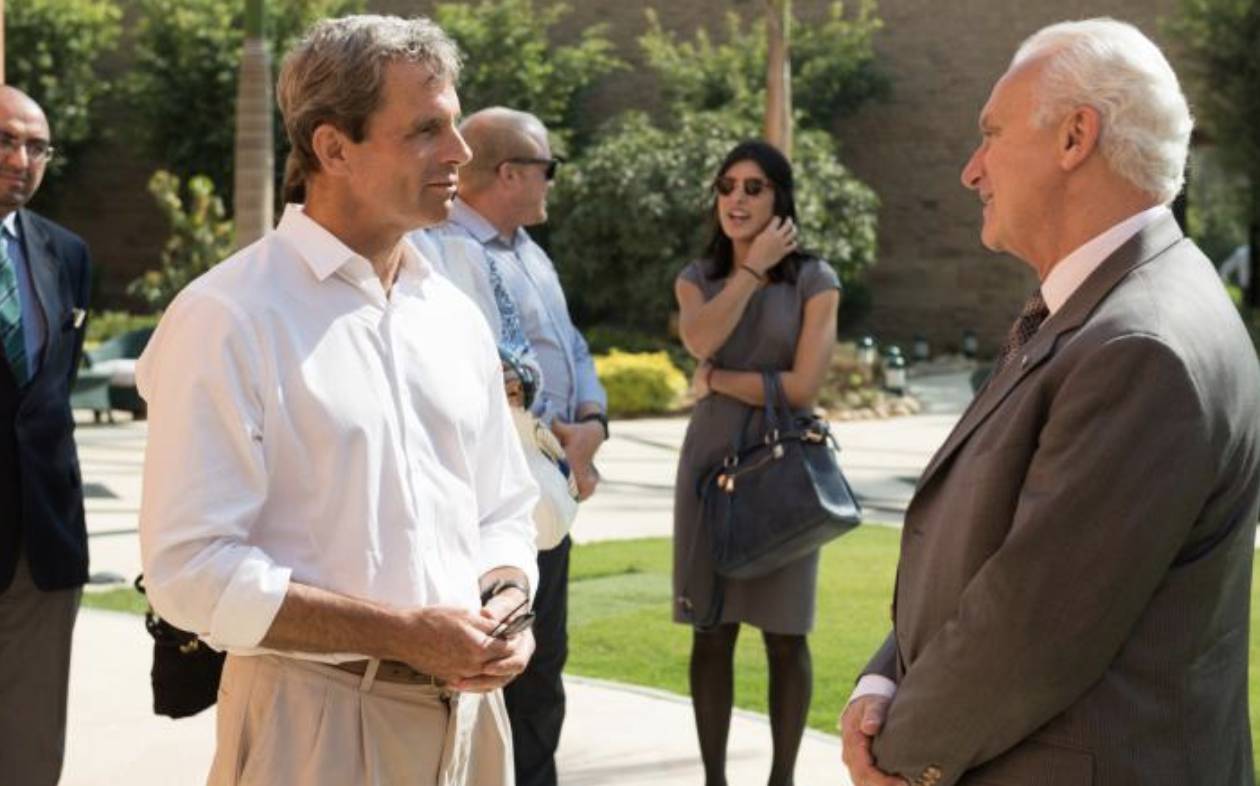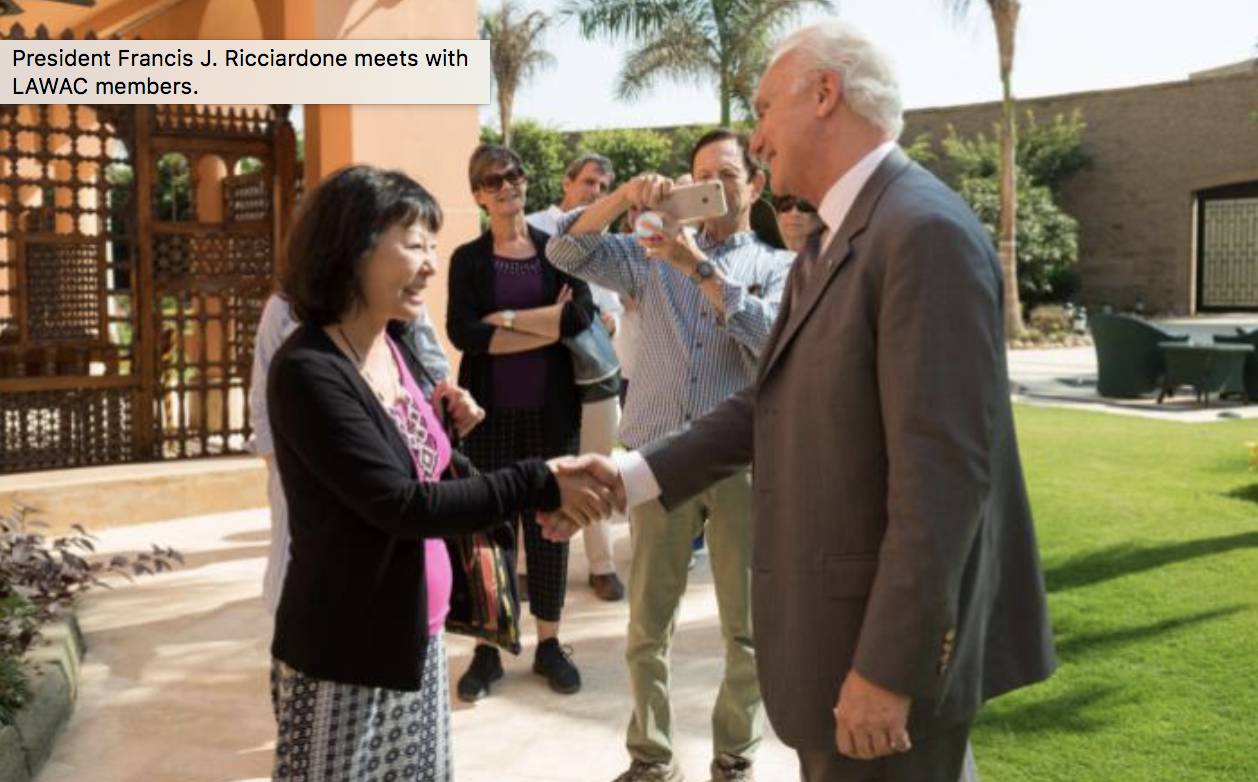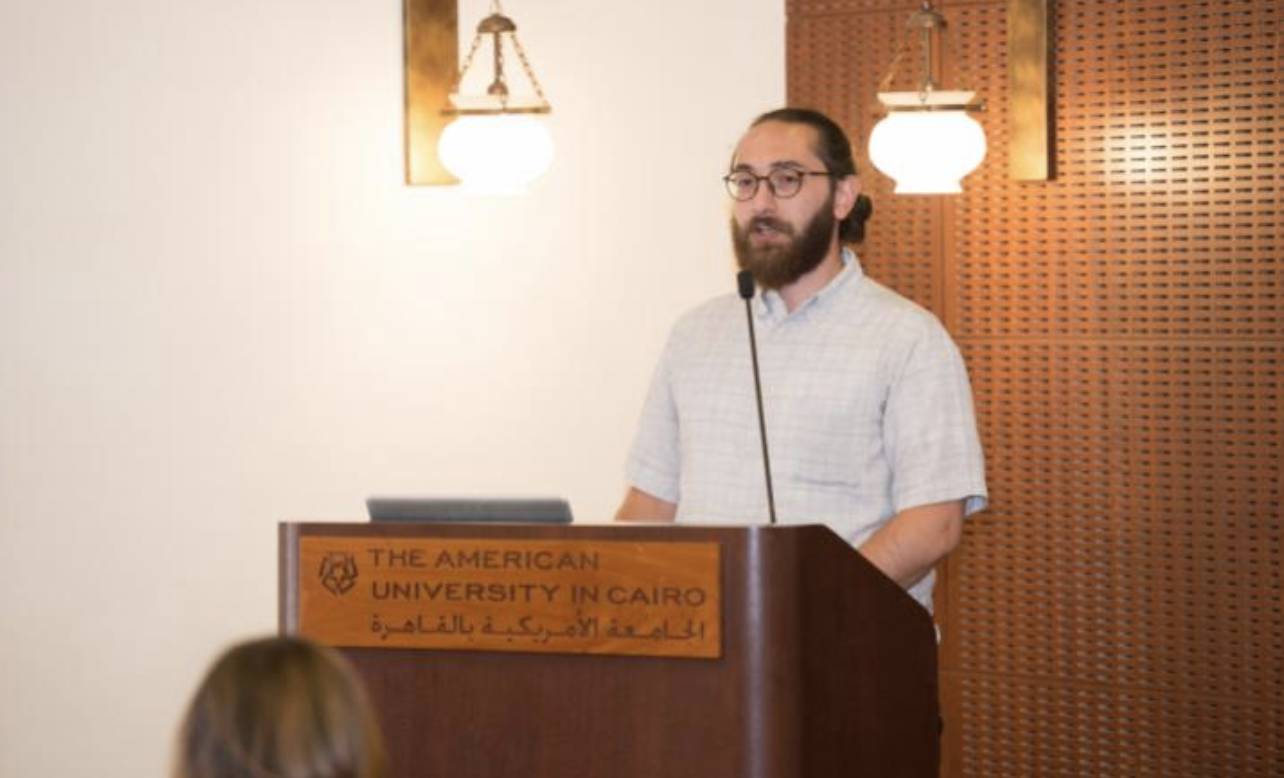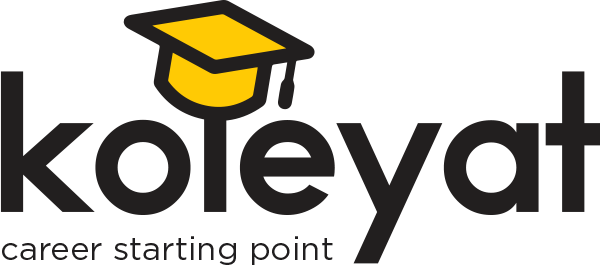 Taking a break from wandering through the streets of Old Cairo during their recent visit to Egypt, a delegation from the Los Angeles World Affairs Council (LAWAC) spent an afternoon at AUC New Cairo Sunday, exploring the campus and engaging in discussions with students, faculty and staff at a lunch with President Francis J. Ricciardone. The visit provided a space for reflection and exchange of ideas between the delegation and AUC community members, mirroring the type of dialogue both LAWAC and AUC continuously seek to promote.
Taking a break from wandering through the streets of Old Cairo during their recent visit to Egypt, a delegation from the Los Angeles World Affairs Council (LAWAC) spent an afternoon at AUC New Cairo Sunday, exploring the campus and engaging in discussions with students, faculty and staff at a lunch with President Francis J. Ricciardone. The visit provided a space for reflection and exchange of ideas between the delegation and AUC community members, mirroring the type of dialogue both LAWAC and AUC continuously seek to promote.
“There’s a lot of interchange between the United States and Cairo, a lot of faculty coming and going,” said Terry McCarthy, president and CEO of LAWAC, a nonprofit, nonpartisan organization based in Los Angeles. “It’s great to keep those channels of communication open. Also, you’re producing every year graduates who have a very nuanced understanding both of the local situation in Cairo and also American traditions, liberal arts. In many ways, AUC has very illustrious alumni, and I would hope that that would be beneficial to Egypt as it tries to find its way in the future.”
In January 2017, President Ricciardone paid his own visit to California to speak with LAWAC about AUC, all it has to offer its students and its pioneering efforts in education. The talk sparked interest among LAWAC members to visit Egypt for themselves, and plans began to unfold.
The LAWAC delegation was composed of diverse group of professionals, including individuals who were visiting Egypt for the first time and some who were eager to return. “I was very interested to come back to Egypt and see how it has changed in the last 20 years,” said Tadeusz Wellisz, plastic surgeon, entrepreneur and chairman of several biotech companies. “I met [President Ricciardone in LA] who was saying wonderful things about what you are doing here at AUC, and I was very interested to come and see that in person.”

The trip offered members an opportunity to tour major sites throughout Cairo, and even included a quick excursion to Luxor. However, it also allowed delegates a chance to experience for themselves what President Ricciardone had described during his Los Angeles visit. Through discussions with students at lunch and a brief tour around campus, which featured a stop at the Rare Books and Special Collections Library, they were able to get a sense of the AUC experience and the University’s vision for its community.
“I’m very impressed by the University here,” noted Wellisz. “It’s amazing what you’re doing. I like the way that you’re adding liberal arts to things like the engineering program. The campus is phenomenal. The students are very engaged, and I’m very hopeful that they’ll find really great things to do after they graduate.”
Delegation members were able to hear about the student experience at AUC firsthand, sitting with University students at lunch and listening to Rasheed Idou ‘14, an alumnus who received the Tomorrow’s Leaders Scholarship as an undergraduate and is currently pursuing a Master of Laws (LLM) under a Writing Center Graduate Fellowship at AUC. “Every one of my peers here today can tell you how AUC changes lives,” Idou shared. “For students like us, an AUC education opens the door for us to become leaders in our community, to give back and to make an impact.”
Through this experience, delegates were able to make observations of Cairo for themselves –– observations they hope to translate to other members and people back in the United States. “I’d say the single most important thing that we can bring back to Los Angeles is, ‘Guess what? It’s safe to visit Egypt!’” exclaimed McCarthy.
Wellisz similarly expressed a hope to convey this experience to others at home. “I’ll be encouraging people to come and see [Egypt] for themselves,” he said.

“It was a wonderful opportunity to host members of the Los Angeles World Affairs Council and provide a space for them to meet some of our students,” said Kim Jackson, AUC’s associate vice president for advancement and key coordinator for the LAWAC trip. “Our hope is that their visit to AUC and the chance to speak with our students increased their understanding of the people of Egypt and the Middle East.”
Experiences such as these provide windows of opportunity to absorb others in dialogue about the value of strengthening international connections. “At a higher policy level, it’s very important that our government representatives in the United States understand that there’s an important need for us to be engaged both in Egypt in particular and the Middle East in general,” McCarthy asserted. “Our mission [at LAWAC] is to help Americans understand the outside world. We bring speakers from around the world to speak to us in LA, and we also bring delegations to foreign countries to give them a better sense of the world around them.”
